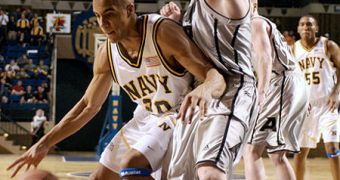A new scientific study turns many a Hollywood sport films into fantasy and fiction. The investigation has revealed that the underdog theory is in fact wrong, and that the favored team is usually the one focusing most on its training, rather than the least favored one. In other words, members of large teams give all that they have across a wide range of sports. The study has also found that those already on top have the highest motivation to win, and not the underdogs, as many movies would have you believe, LiveScience reports.
It has also been discovered that this state of affairs also has something to do with the status-quo of the entire situation. That is to say, there is more at stake for the favored team than for the inferior one. If the more recognized team loses, then a major shift occurs in the way things are set up, in the sense that the leader is changed. But, “If you're the lower-status group and lose to your superior rival, nothing has changed – it just reaffirms the way things are,” Robert Lount, a researcher on the new study, explains. He is also an Ohio State University (OSU) Fisher College of Business assistant professor of management and human resources.
The investigation was conducted on students from five colleges. They were told to engage in simple tasks, such as, for instance, crossing out all the vowels in a few words in a certain amount of time. At the same time, the participants were informed that other colleges were involved in the same competition as well. The worksheets the test subjects used had the logos of all the universities printed on them, in the order gathered from the US News and World Report rankings. It was demonstrated that students from the leading schools tended to work about 30 percent more efficiently when they were pitted against competitors from weaker institutions that were behind in the ranking.
“If you're a coach of a favored team, it would make sense to highlight this favored status to your players. Coaches should let players know that there’s a lot at stake in their game – they could lose their high status. That should be a big motivating factor for your team,” Lount explains. Details of this investigation appear in the latest issue of the respected scientific Journal of Experimental Social Psychology.

 14 DAY TRIAL //
14 DAY TRIAL //